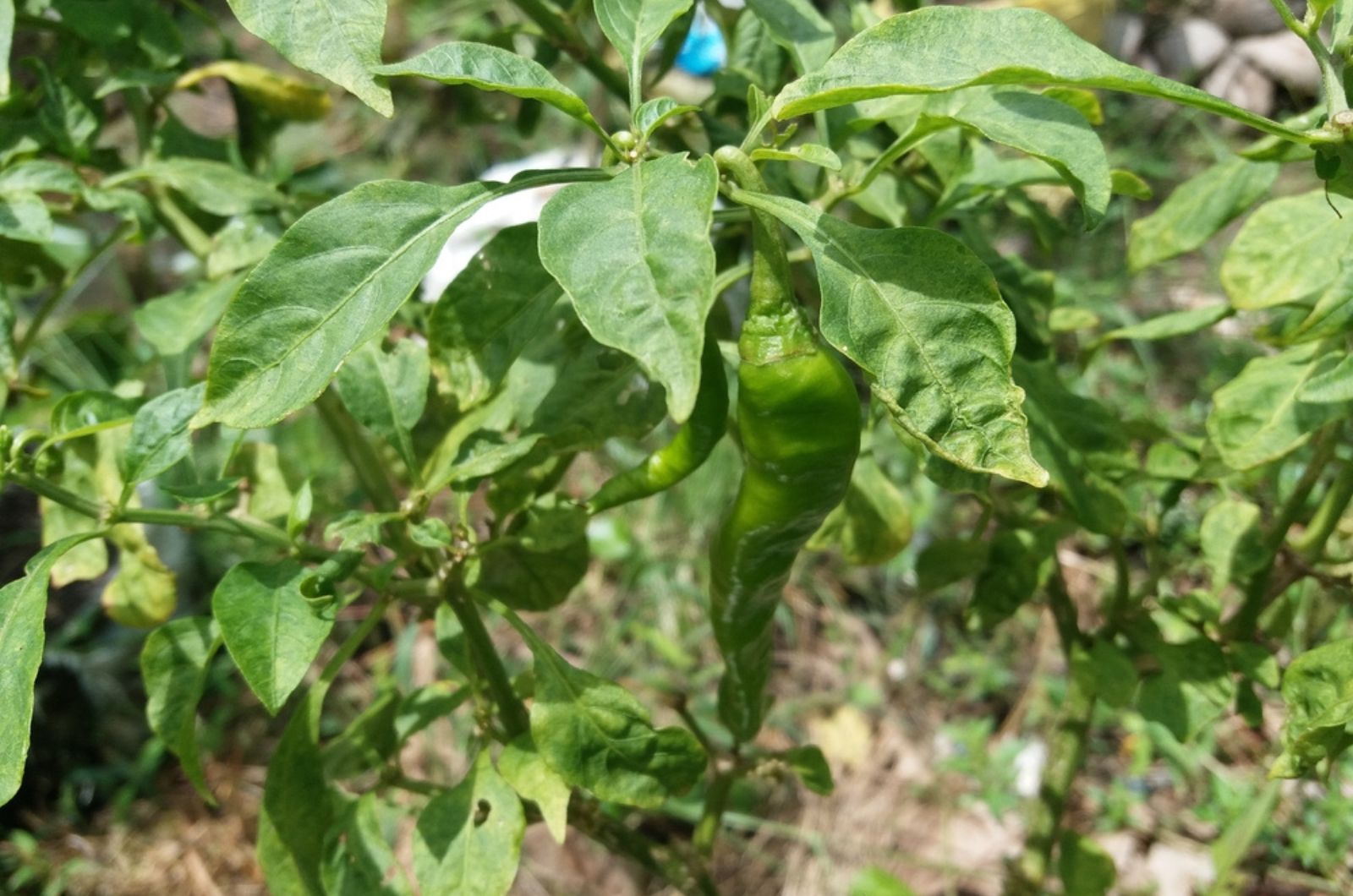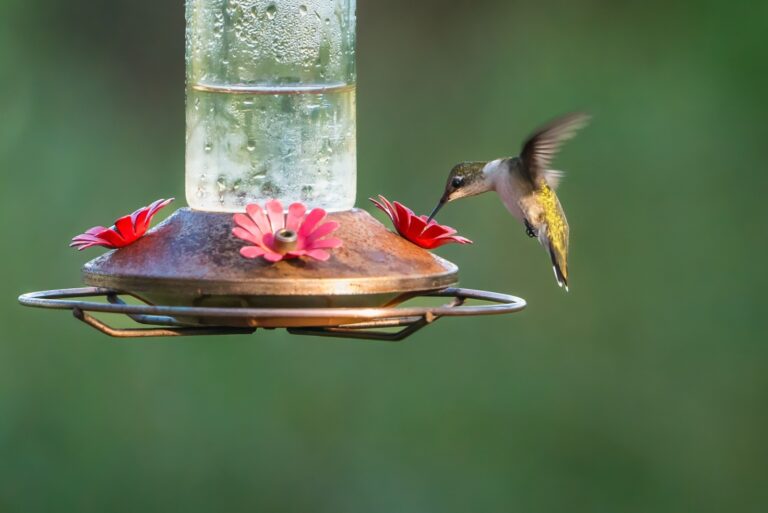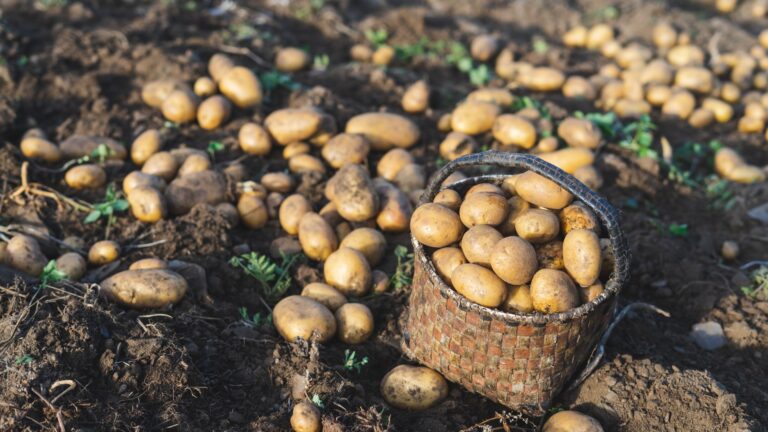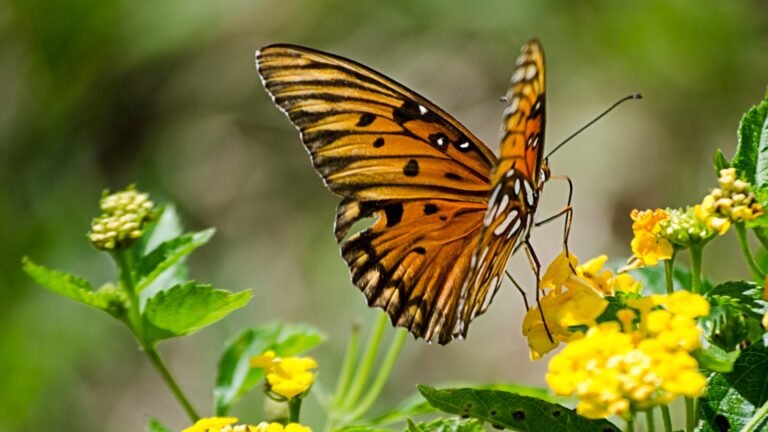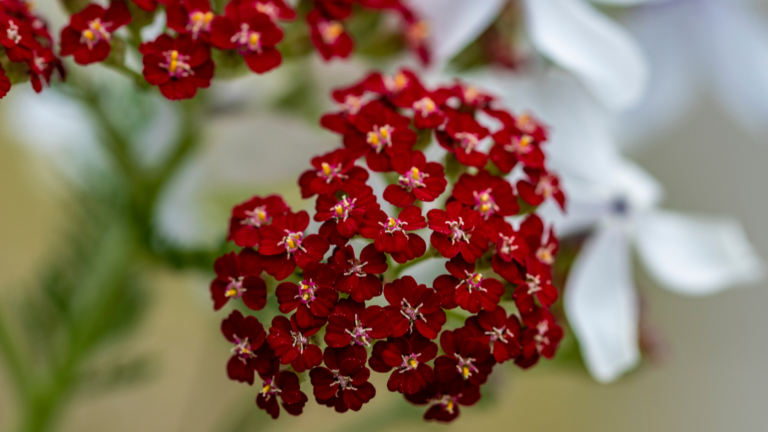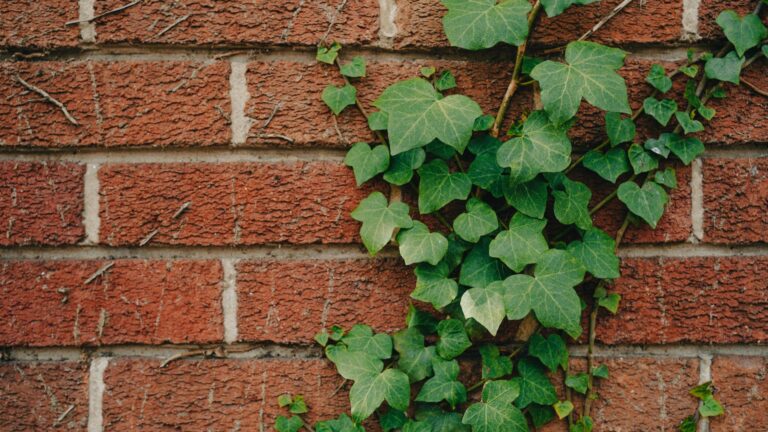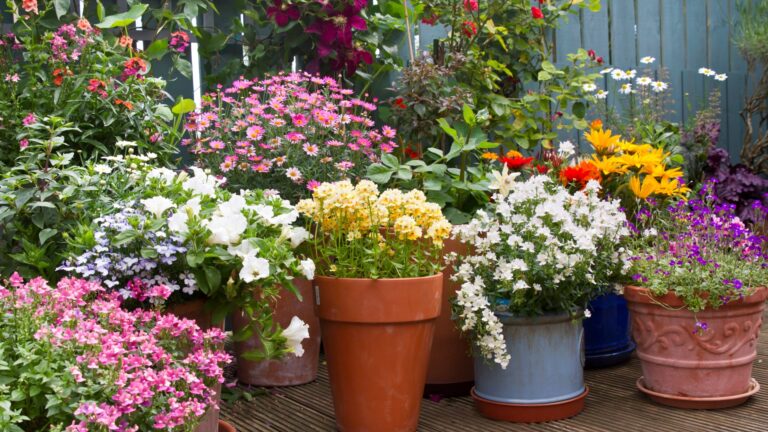Mulching Pepper Plants For An Incredible Boost Is The Recipe You Must Know About
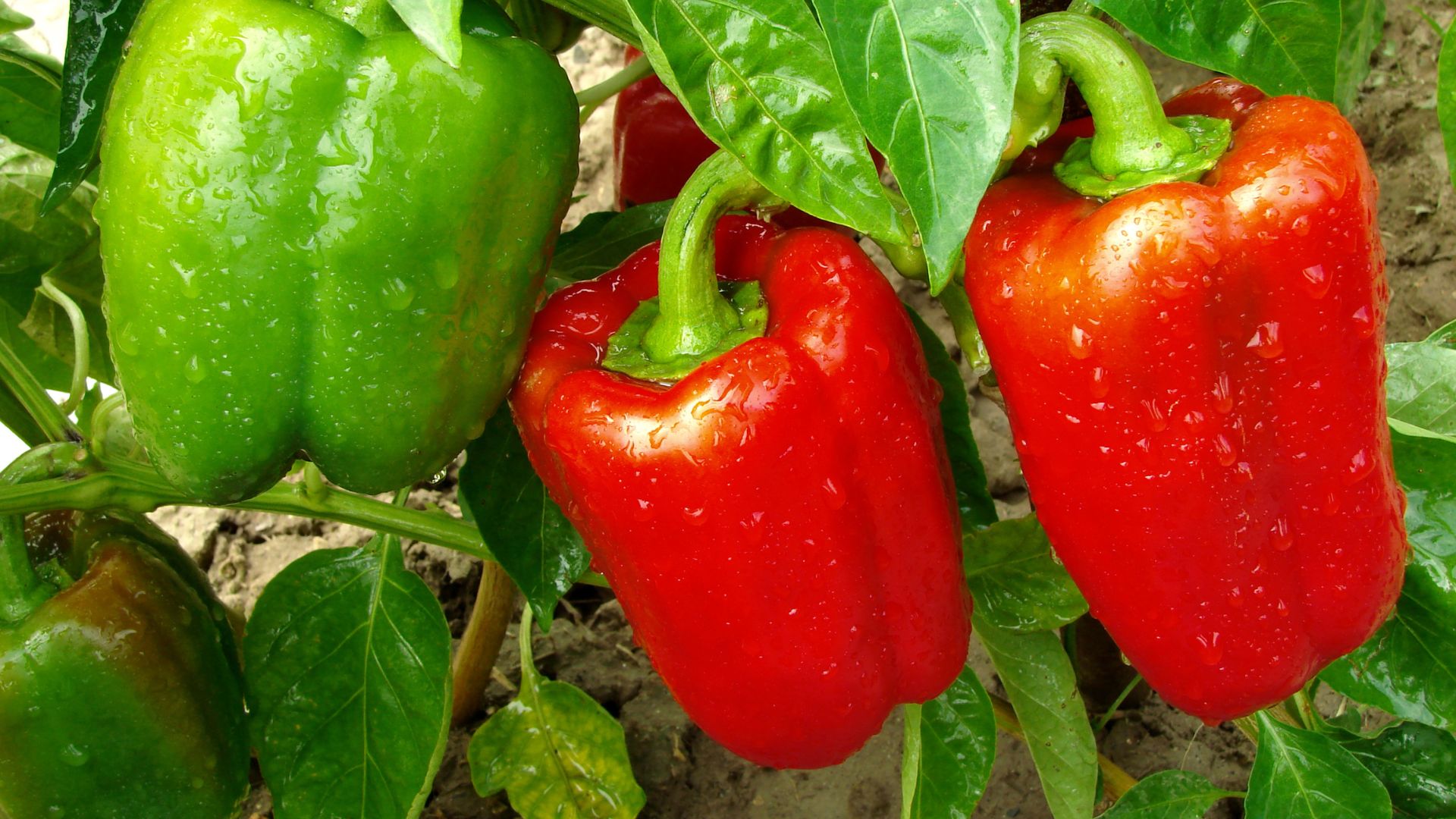
Looking for a way to boost your peppers? Here’s a little-known secret: mulching might be just the solution you are looking for!
I don’t know why no one talks about mulching pepper plants. I’ve been growing them for years, and let me tell you, mulch has been a game-changer in my garden.
No matter if you are growing bell peppers, jalapenos, or any other variety, mulch provides a lot of benefits that can help your plants grow and thrive.
From preserving moisture in the soil to suppressing weeds and regulating soil temperature, mulch does it all! Plus, it adds a tidy, finished look to your garden beds, making them look even nicer.
If you’ve never considered using mulch for your pepper plants, now is the time to do it. Trust me, once you see the results, you’ll wonder why you didn’t start mulching your peppers sooner!
When And How You Spread Mulch Can Make Or Break Your Peppers
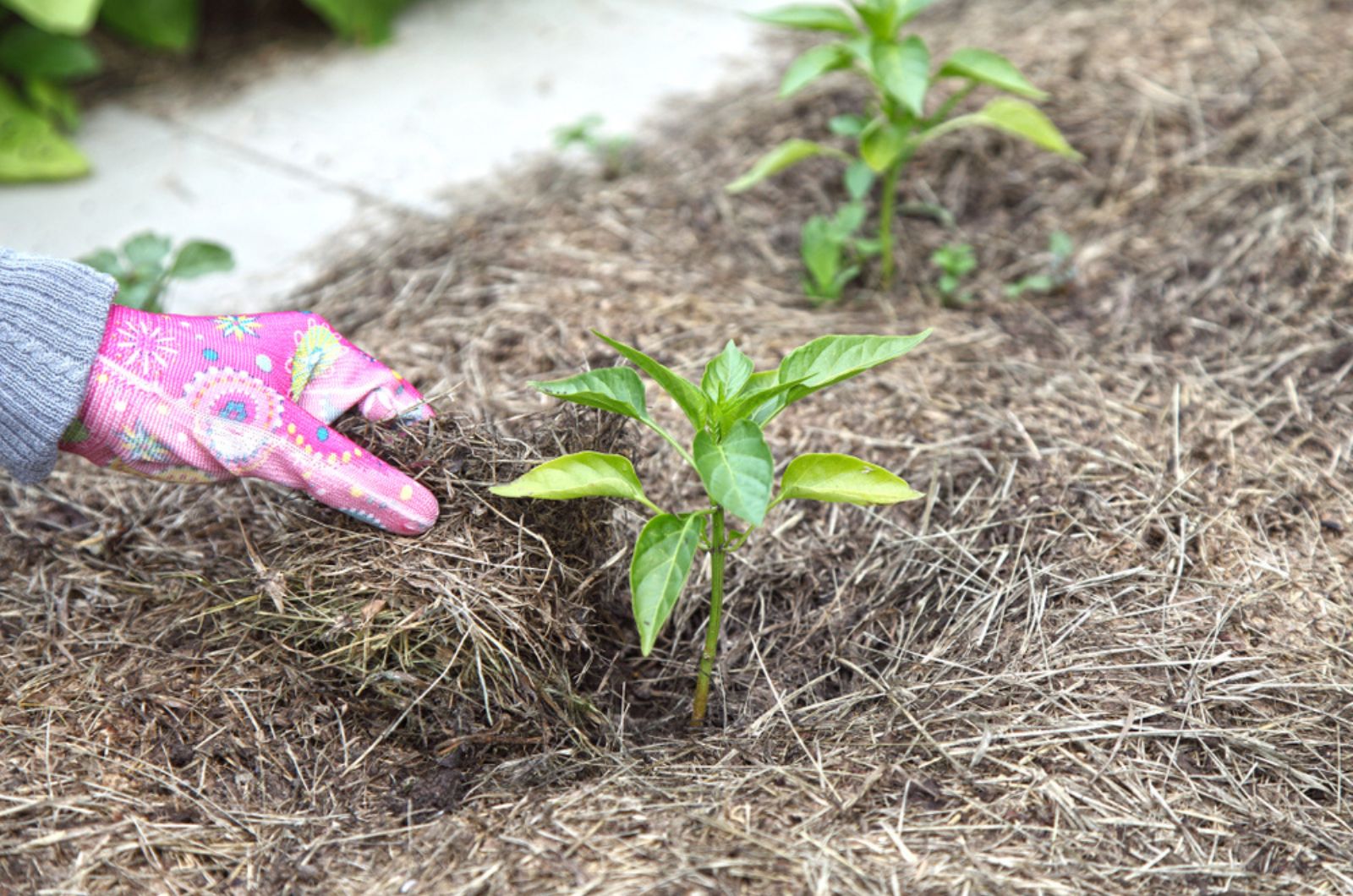
My sister was always jealous of my pepper plants; and no matter how much I talked about mulching them, she just wouldn’t listen. Last year, she finally gave mulch a shot, and let me tell you, her peppers have never been happier – and tastier!
Here are the keys to successfully mulching pepper plants:
Know when to mulch: adding mulch around your pepper plants is a smart move to boost their growth all season long. Timing is key, though, and knowing when to mulch can make a big difference.
Let the soil warm up: I did some research and found that Utah State University suggests waiting until the soil warms up to about 75 degrees Fahrenheit. So I did that, and this usually lines up with transplanting seedlings or seeing your seeds sprout. Plus, by waiting until then, you won’t expose your chili peppers to the chilly soil they don’t really like. Trust me, this simple tip can make a huge difference for your pepper patch.
Clear away any pesky weeds or debris: when mulching around your plants, start by clearing away any weeds or debris from the area. This helps keep the space clean and free from any competition for your pepper plants.
Spread a layer of dry grass clippings: spread about 1 to 2 inches around the base of each plant. It’s important to use dry grass clippings, as wet ones can smother the soil and block oxygen from reaching the roots.
Add fresh mulch: organic mulches like grass clippings break down over time, adding fresh mulch will help keep the soil nutrient-rich for your growing peppers. Keep an eye on your mulch layer throughout the growing season, and top it up when needed.
Related: What Is The Best Mulch For A Vegetable Garden?
Beware Of This Before You Do Some Damage
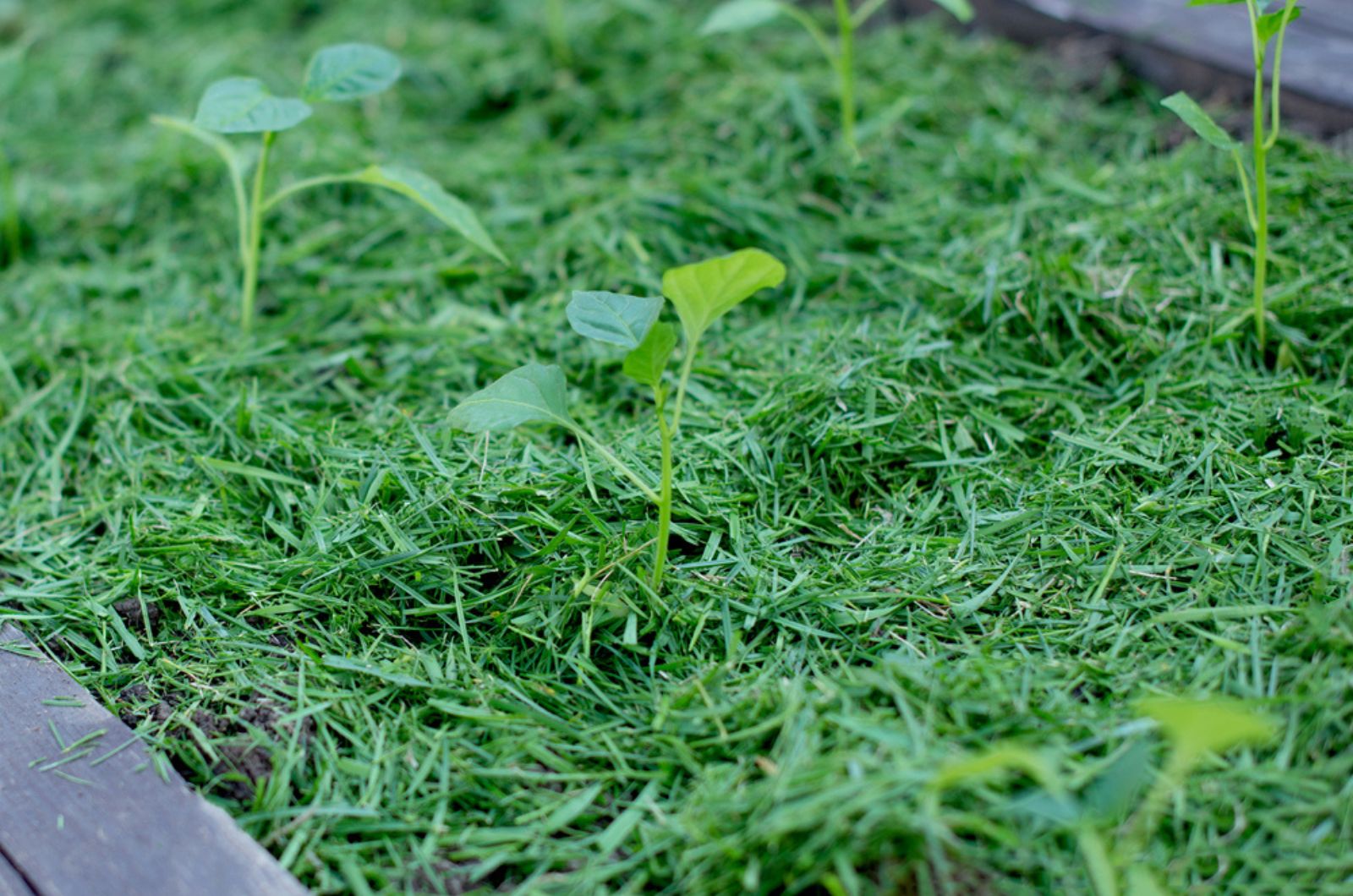
Mulching your pepper plants is like giving them a cozy blanket to snuggle in: but remember, too much of a good thing can cause trouble!
So, don’t smother your plants with a thick layer of mulch – it can trap moisture and invite nasty fungal diseases. Instead, stick to a maximum of 2 inches of mulch, especially when using grass clippings.
You should also regularly check your mulch as it could become a hangout spot for unwanted guests like pests and rodents.
Organic mulches, such as grass clippings, are like a haven for these critters because they offer food and shelter.
So, keep your garden safe by:
• Regularly checking your mulch for any signs of infestation and taking action if needed
• Swapping out old mulch for fresh grass clippings
• Using organic pesticides to keep pests at bay
I personally didn’t have any problems because I kept an eye on my mulch and changed it regularly to keep the critters away.
But despite all of these risks, using organic mulch is still a great way to nourish your pepper plants naturally and keep them thriving all season.
So you see, mulching can help A LOT! Carefully stick to these instructions, check your mulch regularly, reapply it when needed, and watch your peppers transform!
These are my peppers from last year, but I’m sure they’ll be even bigger and better this season:
